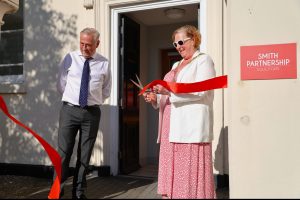Damning report on dissolved Birmingham college shows out of control expenses

The Education and Skills Funding Agency (ESFA) has released an investigation report into Bournville College, which found it broke its own financial regulations and governors failed to act.
Norman Cave, the former principal at Bournville College from 2002 to 2014, which was dissolved in 2017 when it merged with South and City College Birmingham, claimed more than £208,000 on expenses over four years, according to the investigation by KPMG for the ESFA.
The report describes practices at Bournville College between 2011 and 2015 “which clearly fell significantly short of these expectations in terms of the oversight and control of expenditure”.
The SFA referred the KPMG report to West Midlands Police ‘on the question of whether the former Principal had operated fraudulently’ but they decided not to pursue a criminal prosecution.
It found that the college repeatedly broke its own rules around corporate hospitality, marketing services and IT application development.
Responding to the report, Mike Hopkins, Principal of South and City College Birmingham, said: “The simple answer is that Bournville College ceased to exist as a result of what happened and the provision, operation etc is now all part of South and City College Birmingham.
“As such, everything operates under a very different level of control and quality as can be evidenced by the Ofsted inspection we’ve had since the merger, where the college received a Grade 2 (good) last year.”
The report found there were conflicts of interest in the promotions of senior staff including Caves’ wife Anjum, also a member of staff since 2002, (who he married in 2010 and recorded it in the college’s Register of Interests) to a assistant principal role with a 22% pay rise and the hiring of his daughter.
From 2011 to 2015, more than £100,000 was spent on credit card expenses by Mrs Cave.
KPMG established that the former principal and deputy Principal received pay awards seven times between July 2011 and August 2014, on four occasions in line with the pay award agreed for all staff and on three occasions specific to the individuals.
This was in addition to insufficient scrutiny of overseas travel expenses incurred by the principal and investments in overseas companies such as Malaysian Trans Data Management. During the four years for which evidence was reviewed by KPMG, the college established 15 overseas operations through an Indian subsidiary and offices in Malaysia and South Korea.
The investigation found that Cave was the “sole signatory for several overseas travel expenses claims from the assistant principal”, which “should have required third party oversight.”

At time of the events covered in the report, Bournville College was a medium-sized further education college, serving around 15,000 learners in Birmingham.
The report describes how in late 2013, the college requested Exceptional Financial Support funding from the former Skills Funding Agency (SFA) as it was unable to meet its financial commitments.
As a result, the college was subject to intervention by the SFA and the Further Education (FE) Commissioner. This intervention led to significant changes in the executive leadership and governance of the college, and a change of strategic direction for the college.
“However, the college was unable to reverse its financial decline and following the Birmingham and Solihull FE Area Review the governing body agreed to dissolve the corporation in order to merge with South and City College Birmingham,” the report said.
“The total amount of Exceptional Financial Support provided to Bournville College between December 2013 and the merger in August 2017 was £26.5m, none of which was repaid to the government.”
In light of the findings, the ESFA has made a number of recommendations to governing bodies of FE and sixth form college.:
These include governors not relying solely on information provided by the principal, but being able to recognise financial deterioration, and challenge the actions of the executive where their college is facing difficult financial circumstances.
It recommended governors should ensure there is a detailed cost-benefit analysis and board level scrutiny of new initiatives before they are implemented and use a range of information to ensure that expenditure provides value for money.
It also advised governors sto ensure that their audit committee is operating effectively and is regularly reviewing its policies and procedures in relation to regularity, propriety and compliance.









